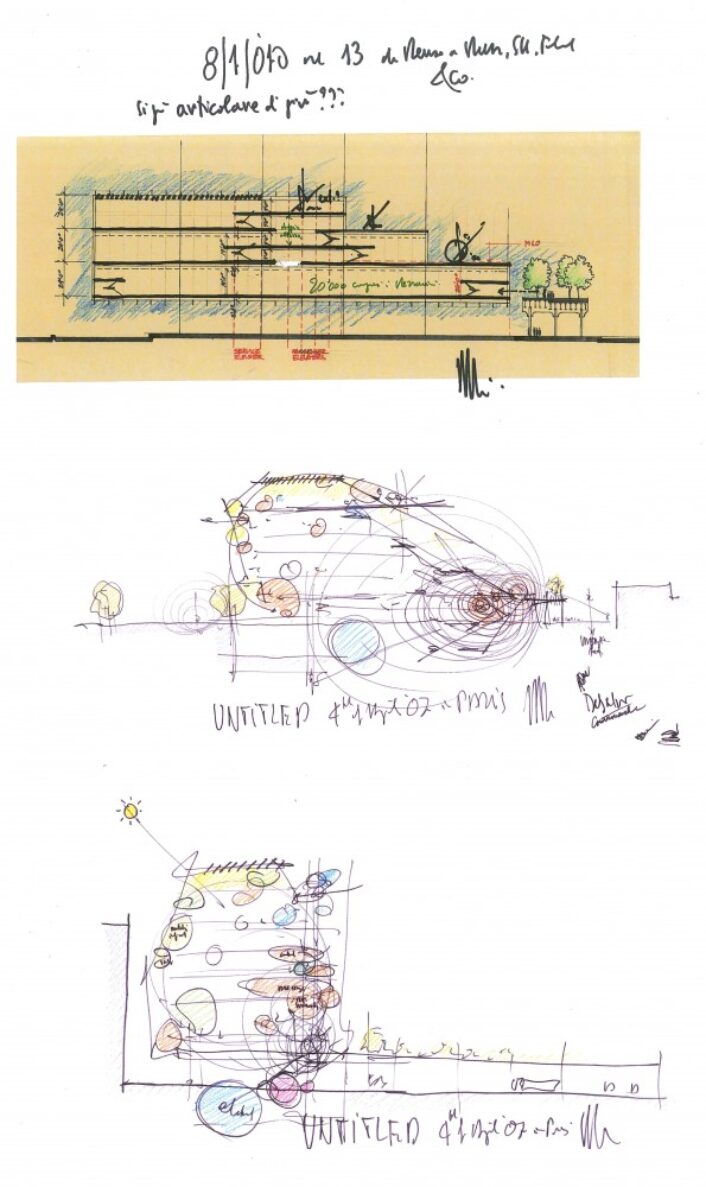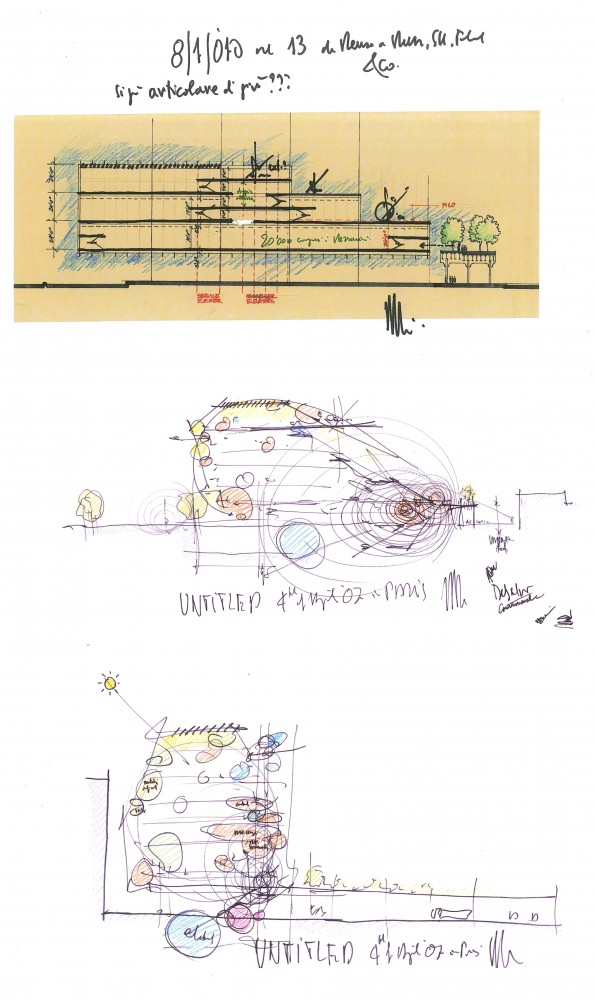
Renzo Piano’s initial sketches for the new Whitney museum.
Image courtesy of the Renzo Piano Building Workshop.
Renzo Piano has become one of the star architects charged with designing the world’s finest museums. We wanted to look at the approach that he took for two of our favorite museums, the Whitney and the Modern Wing of the Art Institute of Chicago.
Renzo Piano began the Whitney project with extensive research of the history of Whitney and its collection to ascertain the future needs of the museum. Claiming that “form followed function” for the institution, he conceived the structure from the inside out. The beginning phases included inviting artists to the building site who are featured in the collections of the museum. Once the inside needs were established, Piano began to design to facade of the building so that it related to its specific location and responds to both the High Line and the river. The building accepts and embraces the changing nature of the site and the river through the light quality and by captures it through ribbons of steel on the exterior. Unique spaces designed specifically for their collections create a sense of intimacy.
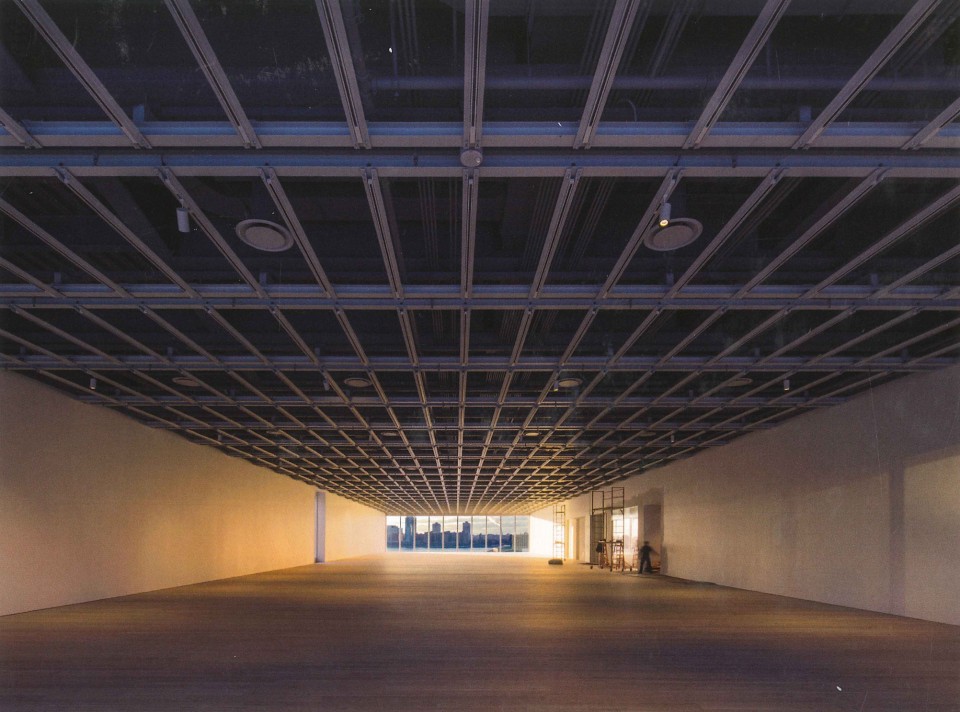
Interior of the Whitney Museum still under construction.
Image courtesy of the Renzo Piano Building Workshop.
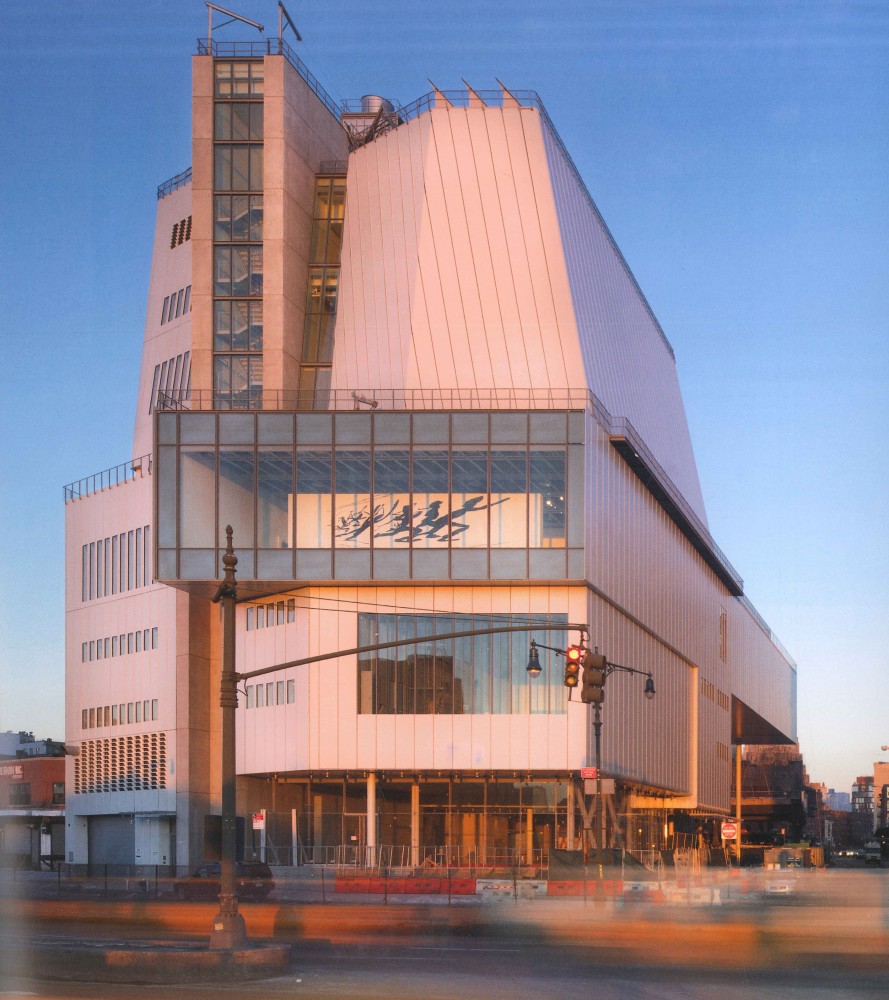
The exterior of the building.
Image courtesy of the Renzo Piano Building Workshop.
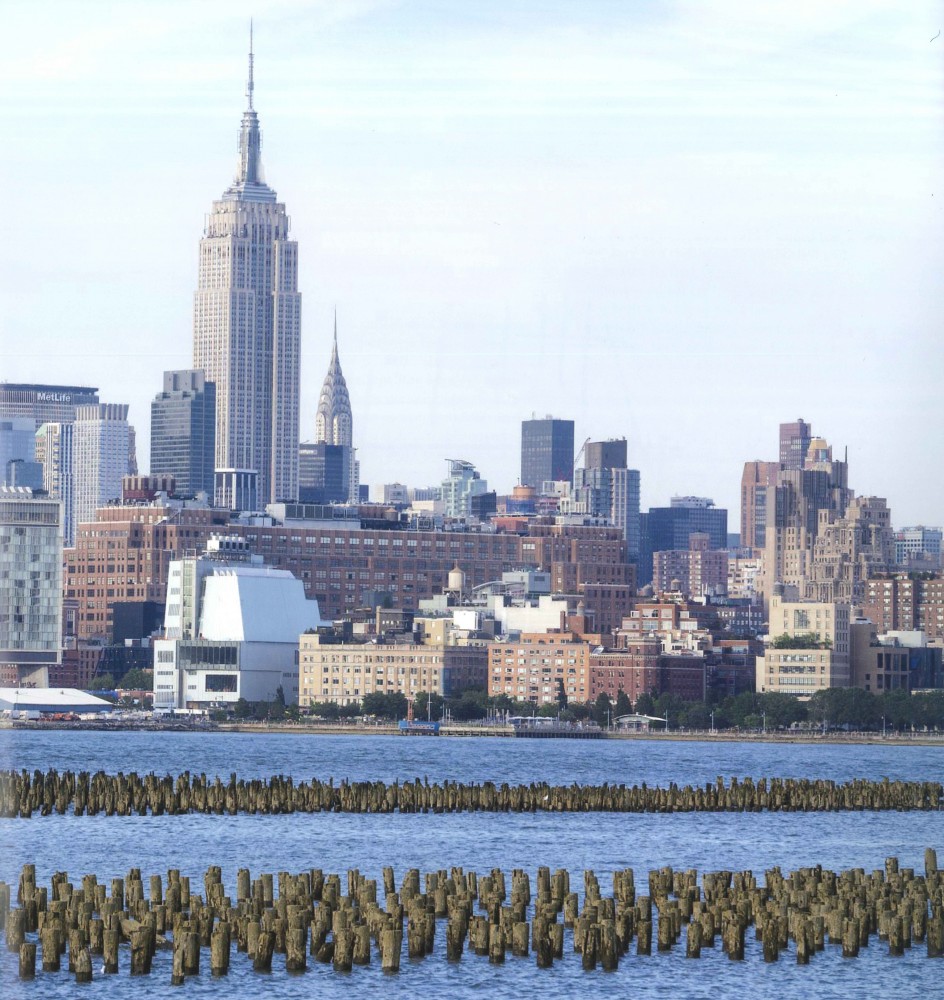
The museum settled within the cityscape.
Image courtesy of the Renzo Piano Building Workshop.
Similarly to the Whitney, the Modern Wing at the Art Institute of Chicago was designed around the concept of making the art accessible and the building open and inviting to encourage people to come in, make memories, and have exciting experiences with art. With the same sensitivity to its surroundings and environment as the Whitney, Piano created a building the echoes both the solidity and the lightness of Chicago architecture. The base of the building is limestone and speaks to the materiality of the rest of the Art Institute and other iconic masonry-clad structures throughout Chicago like the Tribune Tower and Wrigley Building. The steel and glass structure rising off of this foundation is light and airy, and also nods to the famous Chicago skyscrapers.
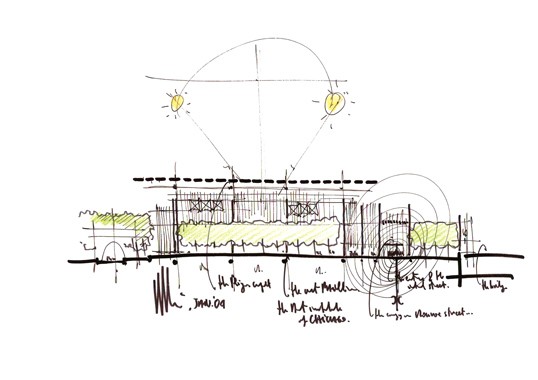
An early sketch of the Art Institute of Chicago.
Image courtesy of Arch Daily.
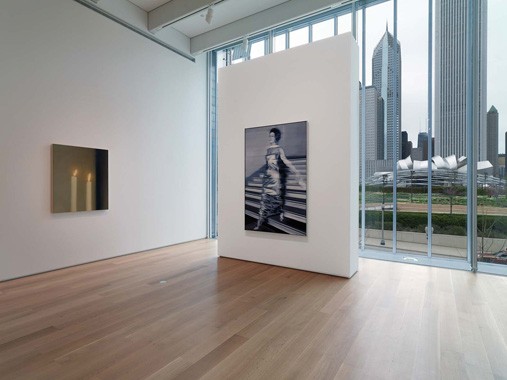
An interior view of the modern wing, looking a some of Gerhard Richter’s finest works.
Image courtesy of Arch Daily.
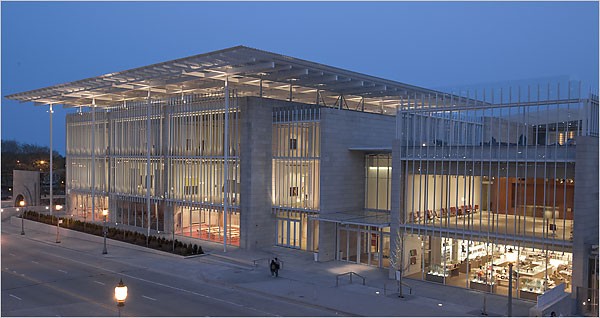
A nighttime view of the modern wing.
Image courtesy of the Renzo Piano Building Workshop.
